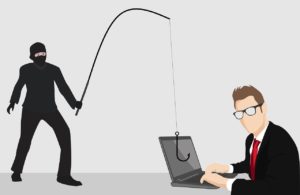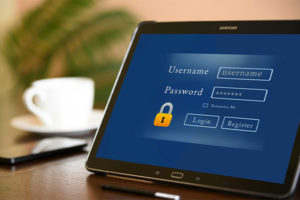Cyber attacks, a growing threat in 2023
From the smallest companies to the largest, cyber attacks are exploding and can wipe out years of work.
They also affect individuals. They are mainly victims ofphishing, account hacking and fake media fraud.
In recent years, the number of false messages to individuals has increased tenfold. The goal is to retrieve credit card numbers, identities, or install malicious code on a victim’s computer, without them noticing.
A cyber attack obviously has immediate repercussions on the company or the individual, but it can also affect the target’s entourage.
If the risk of cyber attacks is an undeniable reality, being well prepared and knowing how to recognize them can make a difference.

How to recognize a risk of cyberattack?
Phishing is the most common form of cyber-malware encountered by all audiences.
This technique consists in sending an email or an SMS to the victim by usurping the identity of a third party (a company, an administration, etc.), in order to incite him to perform an action. It will often ask you to provide personal, business or banking information, or open a link or attachment infected with a virus.
Online account hacking is the second most common threat, both for individuals and businesses.
Hacking into online banking and social networking accounts is a prime target for cybercriminals.
Recently, hackers have also turned their attention to email accounts. These contain a large amount of information and allow them to take control of almost all of the victim’s digital life: changing passwords, transferring personal information…
The fake tech support scam comes in third place. This form of cyber-malice consists of block the victim’s computer by displaying a message about a cybersecurity incident. The frightened victim is prompted to call back a so-called official technical support.
Cyberbullying is also on the rise: intimidation, insults, threats or rumors… Who hasn’t received a message threatening to post compromising photos of themselves on the web?
Among professionals, ransomware attacks are the most used. This cyber attack blocks access to files by encrypting them and demands that the victim pay a ransom to gain access again.
The signs of a cyber attack can be expressed in different ways:
- Workstation slowdown
- Intrusive ads
- Unusual activity on your website
- Suspicious messages received or sent from your mailbox without any action on your part
- Problems when starting up your computers
- Missing, modified, damaged or created files
- Create or delete accounts
- Your computer or computer park is blocked
- Antivirus suddenly issuing numerous alerts
- No more access to the company network or to some of your work tools
- Messages from your bank with no action on your part
- Confidential data is disseminated on the web
- Passwords changed without your knowledge or consent
- Unusual connections or activities on your accounts…

After a cyber attack
Being a victim of a computer attack is a traumatic situation.
This incident makes you realize how much information is stored on your equipment and how important its security is.
After a cyber attack, it is recommended to keep evidence in order to file a complaint.
Don’t contact hackers until you have expert advice from a professional.
Notify your bank, your insurance company and all the service providers around you so that they can take the necessary measures with your various accounts and information.
Secure all of your accounts before bringing your systems back online.
Whether you are an individual or a professional, don’t hesitate to get help for the steps to put your computer equipment back into service.
Cyber attacks in Switzerland
Switzerland has never before experienced so many cyber attacks
In 2022, 34’000 digital attacks were reported in the working world.
This figure had already jumped by 65% in 2021.
Malware and hacking attacks can cause enormous damage to individuals and small businesses.
Figures from the Federal Statistical Office (FSO) are alarming: 350,000 Swiss people were victims of online credit card fraud in 2021. Many have also lost personal documents due to virus attacks.
On social networks, “Swiss data” is hacked significantly more often than the European average.


